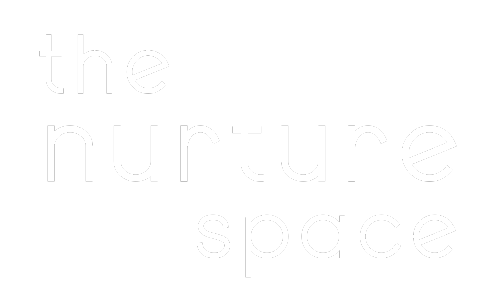The Nurture Space
A Guide to Individual Counselling with Parts Work and the Internal Family Systems Model
Introduction To Individual Counselling using Parts Work and Internal Family Systems
Today we embark on a journey into the fascinating realm of individual counselling, exploring the transformative power of Internal Family Systems (IFS) Model also known as Parts Work. At The Nurture Space we are deeply committed to facilitating personal growth and healing and are excited to share insights and practical guidance on how these therapeutic approaches can help you navigate your inner landscape with compassion and understanding.
Understanding Parts Work and the Internal Family Systems Model:
At the heart of Parts Work and the Internal Family Systems Model lies the premise that our psyche is composed of various "parts" or aspects, each with its own thoughts, feelings, and motivations. These parts often operate autonomously, influencing our thoughts, behaviours, and emotions in subtle yet profound ways.
In the context of counselling, Parts Work involves identifying and engaging with these internal aspects in a compassionate and non-judgmental manner. By acknowledging and understanding the roles these parts play in our lives, we can begin to foster harmony and integration within ourselves.
The Internal Family Systems Model, developed by Dr. Richard Schwartz, provides a framework for this exploration. It conceptualises the psyche as a family system, with different parts occupying distinct roles, such as managers, firefighters, and exiles. Through the lens of IFS, we can explore the dynamics between these parts and work towards healing and integration.
Practical Applications in Individual Counselling:
Now, let's delve into how Parts Work and the Internal Family Systems Model are applied in individual counselling sessions:
- Establishing Safety and Trust: Before delving into Parts Work, it is crucial to create a safe and trusting therapeutic environment. Clients need to feel supported and understood as they explore their inner landscape. Establishing rapport and building a strong therapeutic alliance lays the foundation for productive counselling sessions.
- Identifying and Naming Parts: The next step involves identifying the various parts present within the client's psyche. Through guided introspection and dialogue, clients can begin to recognise the different roles these parts play in their lives. Naming and externalising these parts can help clients develop a sense of agency and detachment, allowing for greater self-awareness.
- Cultivating Curiosity and Compassion: As clients explore their inner landscape, it is essential to approach each part with curiosity and compassion. Rather than judging or suppressing certain aspects, the goal is to cultivate acceptance and understanding. This compassionate stance creates space for healing and integration to occur.
- Facilitating Dialogue and Integration: Through guided visualisation and inner dialogue, clients can engage in conversations with their various parts. This process allows for deeper exploration of underlying emotions, needs, and beliefs. By fostering communication and collaboration between parts, clients can work towards greater coherence and wholeness.
- Healing Exiles and Transforming Protectors: Within the Internal Family Systems Model, certain parts may take on protective roles or carry emotional wounds from past experiences. Through gentle exploration and validation, therapists can help clients heal these exiled parts and transform protective mechanisms that no longer serve them.
- Embracing Self-Leadership: As clients progress in their therapeutic journey, they learn to cultivate self-leadership—the capacity to navigate their inner landscape with wisdom and compassion. By accessing their core Self—the essence of their being—clients can become more attuned to their authentic needs and desires, guiding their actions and decisions from a place of inner wisdom.
Deeper Dive into the Different Parts in IFS and Individual Counselling:
Now, let's explore in more detail the different parts in the Internal Family Systems Model and how we engage with them in counselling.
- Managers: Managers are parts of the psyche that strive to maintain control and order. They often develop strategies to navigate daily life and protect the individual from perceived threats or vulnerabilities. These parts may manifest as perfectionists, planners, or caretakers, aiming to prevent chaos and maintain stability. In counselling, we work with managers to understand their underlying motivations and help them relax their grip, allowing for greater flexibility and spontaneity.
- Firefighters: Firefighters are reactive parts that emerge in response to distress or overwhelming emotions. They act impulsively to extinguish or distract from painful feelings, often through behaviours such as substance abuse, self-harm, or excessive activity. While firefighters aim to provide relief in the short term, their interventions can be harmful in the long run. Through compassionate inquiry, we explore the underlying needs driving firefighter behaviour and help clients develop healthier coping mechanisms.
- Exiles: Exiles are wounded or vulnerable parts of the psyche that carry unresolved emotional pain from past experiences. These parts often harbor feelings of shame, fear, or abandonment, stemming from childhood traumas or significant life events. Exiles are typically hidden from conscious awareness, as they represent aspects of ourselves that we may find difficult to face. In counselling, we create a safe space for exiles to emerge and be heard, facilitating healing and integration.
- Wise Self: The Wise Self represents the core essence of the individual—the seat of wisdom, compassion, and clarity. Unlike other parts, the Wise Self is not defined by wounds or protective mechanisms but embodies qualities of resilience and authenticity. In counselling, we help clients connect with their Wise Self, accessing its guidance and perspective to navigate challenges and make empowered choices.
The 4 C's in IFS:
In addition to the practical applications mentioned above, it's essential to highlight the core principles of IFS, often referred to as the 4 C's:
- Curiosity: Approach all parts of yourself with an open and curious mind. Instead of judging or dismissing them, seek to understand their motives, fears, and desires. Curiosity fosters a sense of exploration and discovery within the inner landscape.
- Compassion: Embrace each part of yourself with compassion and kindness. Recognize that every part has its own history and experiences, which shape its behaviours and emotions. By offering compassion, you create a nurturing environment for healing and growth.
- Courage: Embrace courage as you journey into the depths of your psyche. Facing internal struggles and vulnerabilities requires bravery and resilience. Trust in your capacity to navigate challenges and emerge stronger on the other side.
- Connection: Cultivate a deep sense of connection within yourself and with others. Recognise that all parts are interconnected within the internal family system, influencing each other in intricate ways. By fostering connection, you promote harmony and integration within the psyche.
Conclusion:
As we conclude our exploration of Parts Work and the Internal Family Systems Model for individual counselling, I invite you to reflect on your own inner landscape and ponder of what parts of yourself that you recognise and how these parts influence your thoughts, feelings, and behaviours.
In the journey of self-discovery and healing, individual counselling offers a safe and supportive space to explore the complexities of our inner world. If you're ready to embark on this transformative journey, I invite you to reach out and schedule a session with Therapist Niki Gelekis. With her compassionate guidance and expertise in Parts Work and the Internal Family Systems Model, let’s explore the depths of your psyche, cultivate greater self-awareness, resilience, and compassion, ultimately leading to a more integrated and fulfilling life.
Thank you for joining us on this journey. May you embrace all aspects of yourself with curiosity, kindness, and acceptance.



